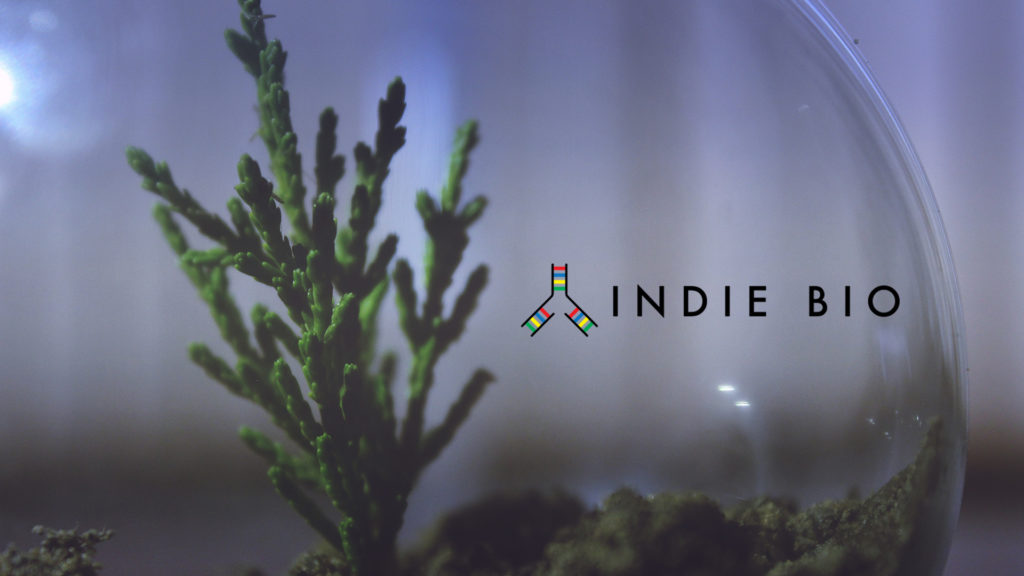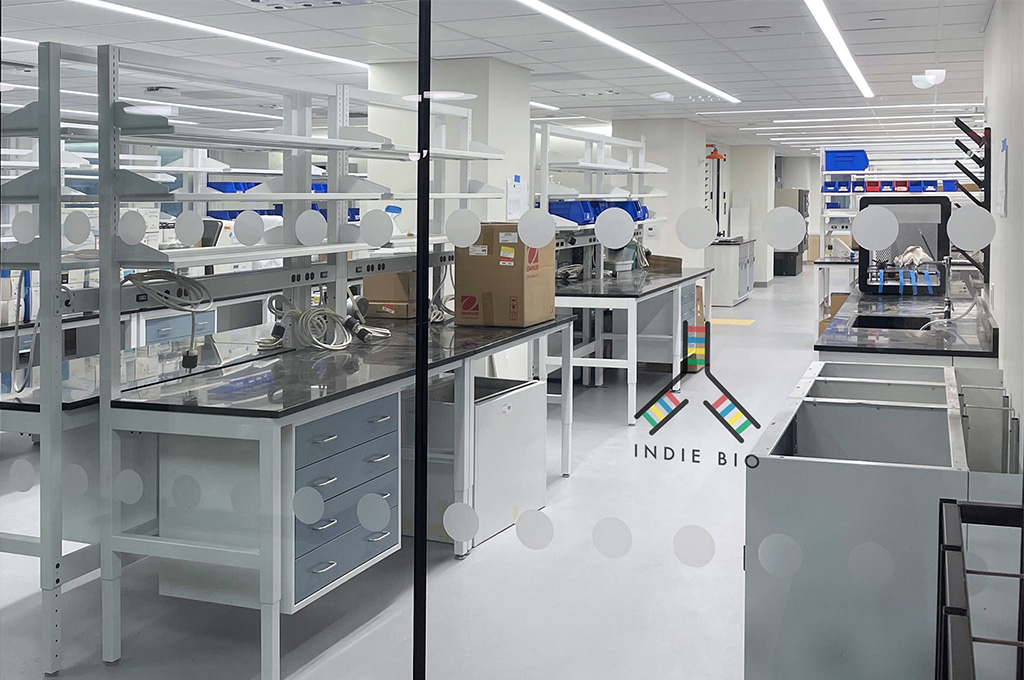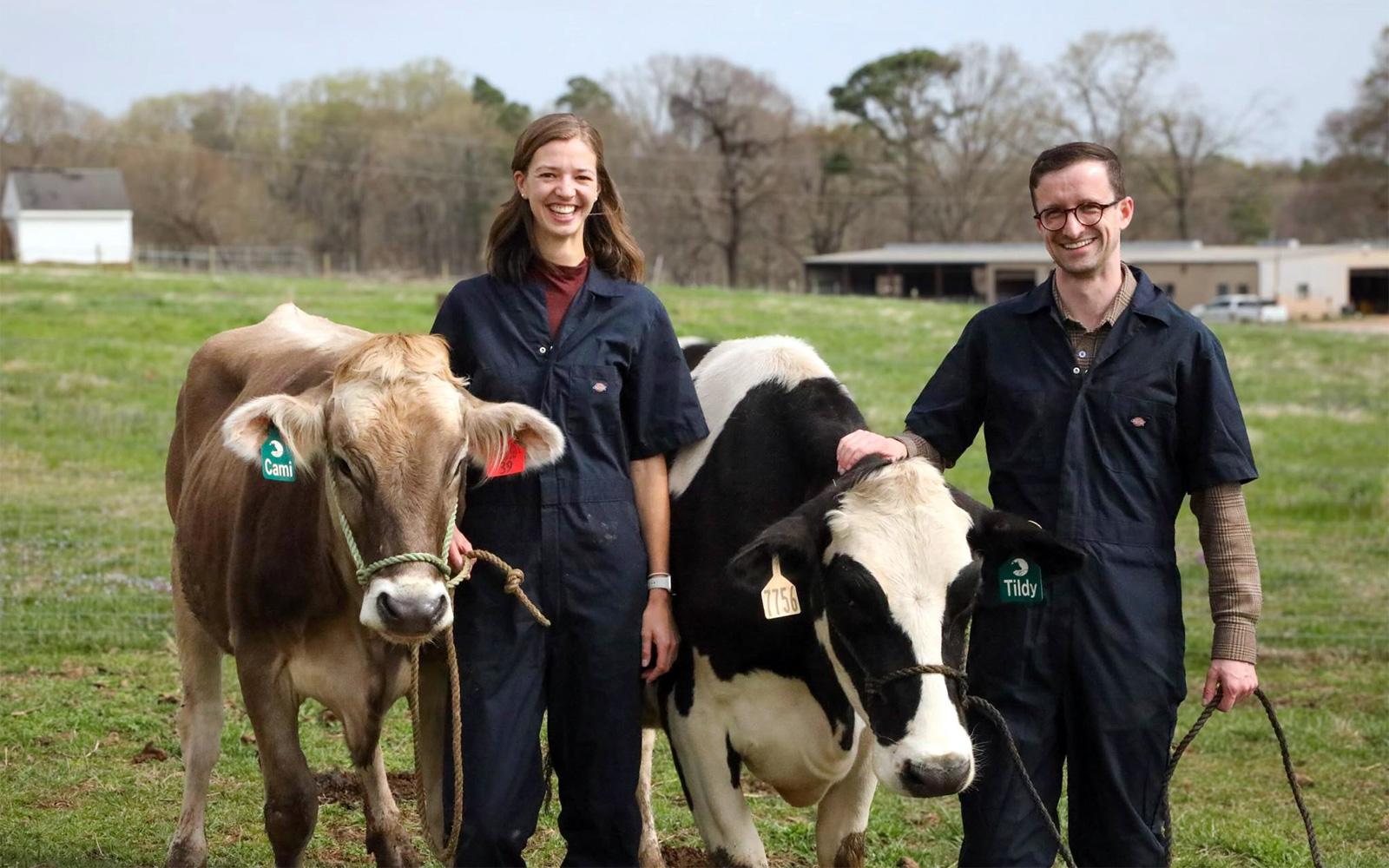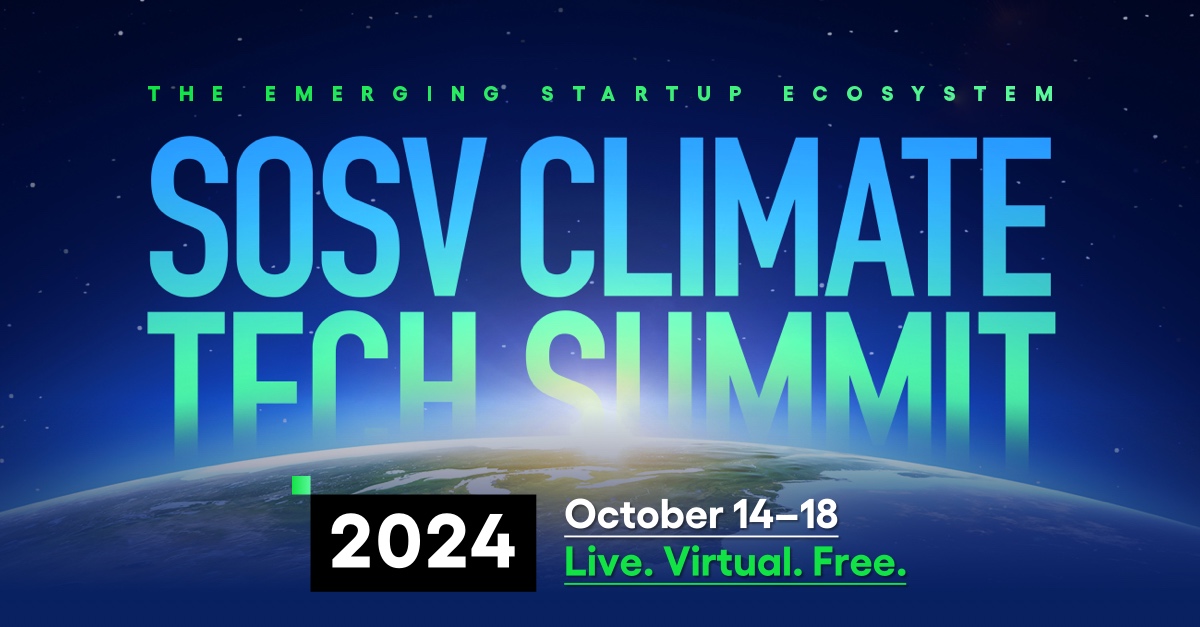Explore the “New Biotech” with the IndieBio team and learn how we can re-imagine, re-materialize, and rebuild the world together.

As a traditional natural science, biologists used microscopes to better understand the human body. “A lot of therapeutics have been observations through nature. Like finding a tree bark and turning that into a drug,” CSO and Partner, Jun Axup explained. Yet as we continue to integrate technology into biology, we’re able to redesign and reengineer our very nature.
“Over the last 70 years, we have really perfected the ability to read, write, copy, cut, and paste DNA,” Axup continued. “Pretty much everything we see and use around us has some relation to biology, and can be potentially improved upon using biotechnology.”
Five years ago, in the early days of biohacking, IndieBio started as an experiment out of SOSV Accelerator, to give scientists a chance to become entrepreneurs. “We think that PhDs and other scientists can actually take the science that they’ve been working on and build a company,” Axup said.
In the early stages of IndieBio we invested in food, agriculture, medical devices, biopharma, neurotech, computational bio, industrial bio, and regenerative medicine. “We took the risk that nobody else would take,” Head of Investor Relations, Maya Lockwood said.
In some ways IndieBio is a petri dish, where we spread startups out into the bio-atmosphere. Some will survive and some will not. From watching many startup’s life cycles we’ve learned some important variables. What works in the market, who’s paying for what kind of technology, and what kind of team culture makes a successful company?
We’re now at an inflection point, where the pandemic has rapidly exposed our system’s vulnerabilities in our healthcare and food supply systems. While at the same time the technologies of the “future” don’t seem so far away.
For the last couple of decades humans have engineered digital systems to manipulate biology to scale sustainable solutions, launching the synthetic biology revolution. “We’re seeing a lot of this convergence in the neurotech space,” CTO, Pae Wu said. “New materials and digital systems are being able to interface really well and elegantly with biology, neurons, and muscles.”
Enter 2020, and we’ve experienced the reality of natural disasters and diseases threatening our lives. Through this we have realized, to maintain our human health we must also maintain our planet’s. “The two are hand in hand,” Axup said, “and in some ways, planetary health is more important. If we don’t have a planet, then our individual health doesn’t really matter.”
Here at IndieBio, we kept these lessons in mind when we invested in solutions for food supply, climate change, agriculture, medicine, and diagnostics.
As people continue to spearhead the development of biotechnology, we call out to investors to launch sustainability into the future. “For these companies to move on to the next level and grow, we need the participation of everyone,” Lockwood said. This requires the participation of venture capitalists, corporations, and policy makers.
We are building these world changing technologies by assessing the talent, and fostering an ecosystem that will help these companies through to the end. “As our companies graduate through our program,” Lockwood continued, “we’ve been learning that they are raising a lot of capital and going on to create whole new industries.” Within the next two to three years, many of the companies will raise to series A.
“Our long term vision is to improve human and planetary health by making more industries sustainable,” Lockwood said. The latest solution companies to our portfolio are in cosmetics, construction, fashion, and food industries.
In alliance with SOSV & Mayfield fund, we created the Genesis Consortium, to promote human and planetary health and make it accessible for others to co-invest in a sustainable future. “It’s really important right now that this is a process of collaboration and that we are more inclusive in building ecosystems that gets everyone involved,” Lockwood explained.
Last March we expanded our reach beyond Silicon Valley and opened an office in New York. “When you think of New York, you think of investors, right?” NY Communications Director, Julie Wolf said. Well, while NY pulls in NIH dollars, it’s not so great at pulling in VCs. As of 2016, for every NIH dollar there was only $0.06 in VC. “There’s not a lot of actual biotech startups,” Wolf said. IndieBio wants to change this.
With seven percent of all postdocs moving to New York City, “One of the roles at IndieBio New York is to identify the talent that needs that chance, that opportunity to take their idea and turn it into a company with transformative technology,” Wolf said. “Hopefully we won’t be alone.”
We are entering a new world where we can restore contaminated soil, improve fertility, make new blood supplies, and create abundant supplies of protein. There are solutions to the global challenges, we’re just not pulling our resources together. “We need to recognize that there’s huge potential at our hands,” Lockwood said. “Materials can now be made without extracting more resources from the earth and this is the news we want to focus on.”
This is an opportunity to rematerialize, reimagine, rebuild the world. “We need to stop and listen and reassess how we have been living,” Lockwood said.
For anyone who wants to explore the expansion of biology as a technology, our Managing Director, Po Bronson, along with IndieBio’s founder and Venture Advisor, Arvind Gupta, recently published a roadmap for the curious, “Decoding the World.”
To learn more about IndieBio and the portfolio of companies, watch our Demo Days. They showcase the talent of scientists who are rebuilding the world.



